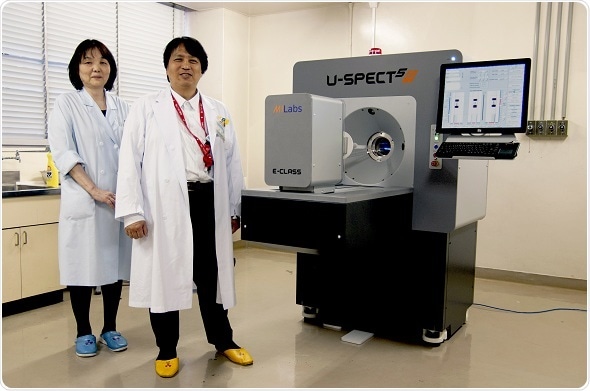Kawasaki Medical University, Yokohama’s research hub for state-of-the-art medical science and services has acquired an ultra-high-resolution E-Class U-SPECT6/CT system for preclinical imaging. E-Class stands for “Economical Excellence” and is based on MILabs’ award-winning generation of broadband photon tomography. It is the only nuclear imaging system that can image mice with the same visual acuity as can be obtained from imaging humans with clinical scanners.

Prof. M. Inubushi and Dr. A. Mimura with their new U-SPECT6/CT system
(Commercial Innovation of the Year at the WMIC 2018 Congress)
Prof. Masayuki Inubushi, principal nuclear medicine investigator and a Japanese opinion leader in molecular imaging states:
If we expect to see structures in a mouse that we are used to see in human imaging, we will need to achieve comparable anatomical and functional resolution. Today, this resolution can only be achieved with a MILabs U-SPECT/CT system”.
Prof. Frederik Beekman, founder and CEO/CTO of MILabs comments:
We are grateful that our system can contribute to the pioneering translational research work of Prof. Inubushi. Among his past accomplishments are the first off simultaneous imaging of co-injected PET/SPECT complementary oncology tracers on a MILabs VECTor PET-SPECT-CT installed at the National Institute for Radiological Sciences in Japan”.